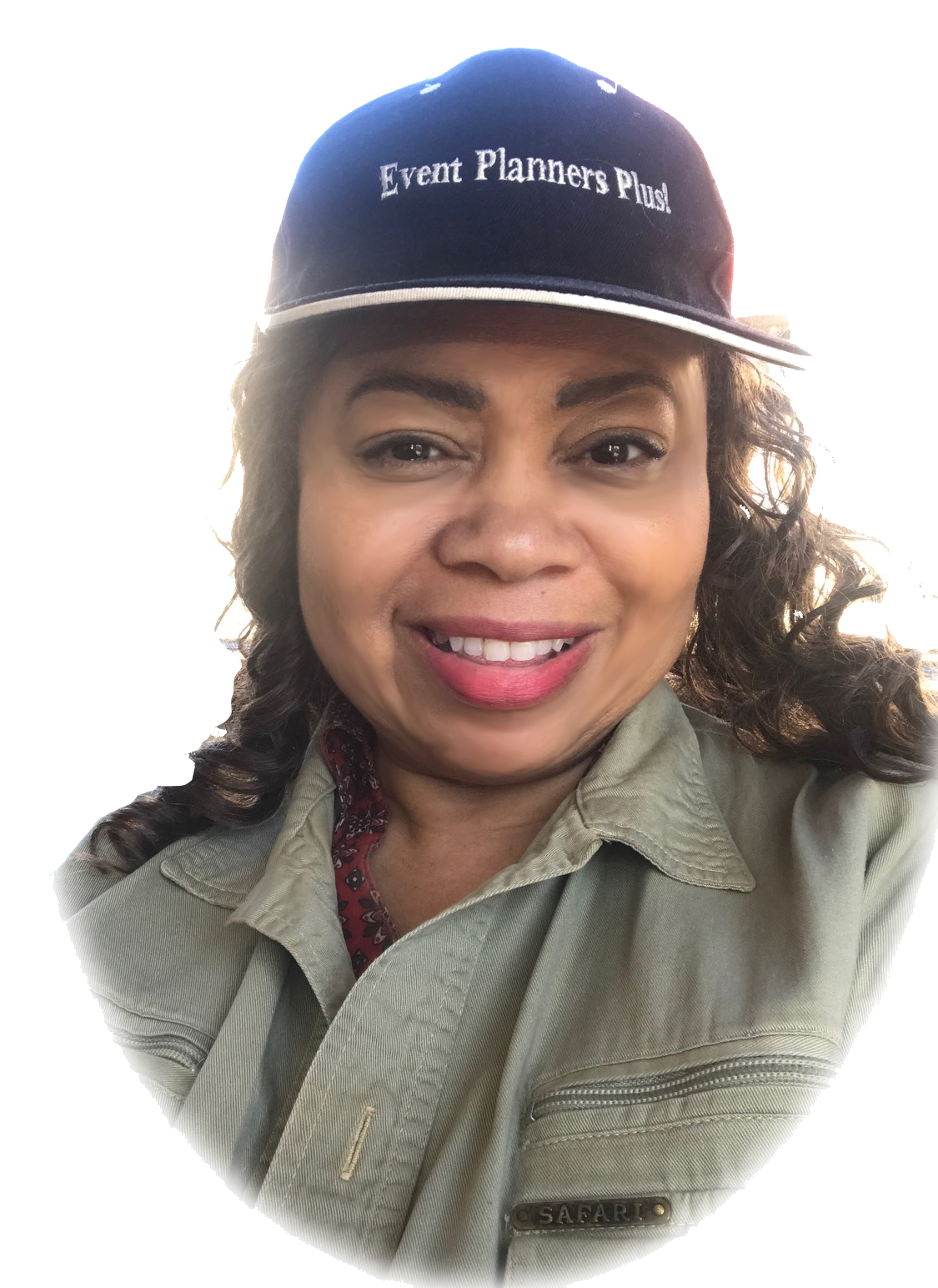From ABC News | February 26, 2021
At Cape Coast Castle on the shores of the Ghanaian city, a sordid history belies its beauty.
The castle overlooking the Atlantic Ocean, a former slave-trade outpost, is home to the so-called “Door of No Return,” through which millions of Africans were forced onto slave ships bound for the United States.
“Even though you may not know the exact village you come from, the township you come from, the clan — the family — you come from, you can be assured that this is one of the last places that our ancestors touched before leaving these shores,” said Rabbi Kohain Halevi, a board member of the Diaspora African Forum, a nonprofit that in part helps connect visitors to their ancestral history.
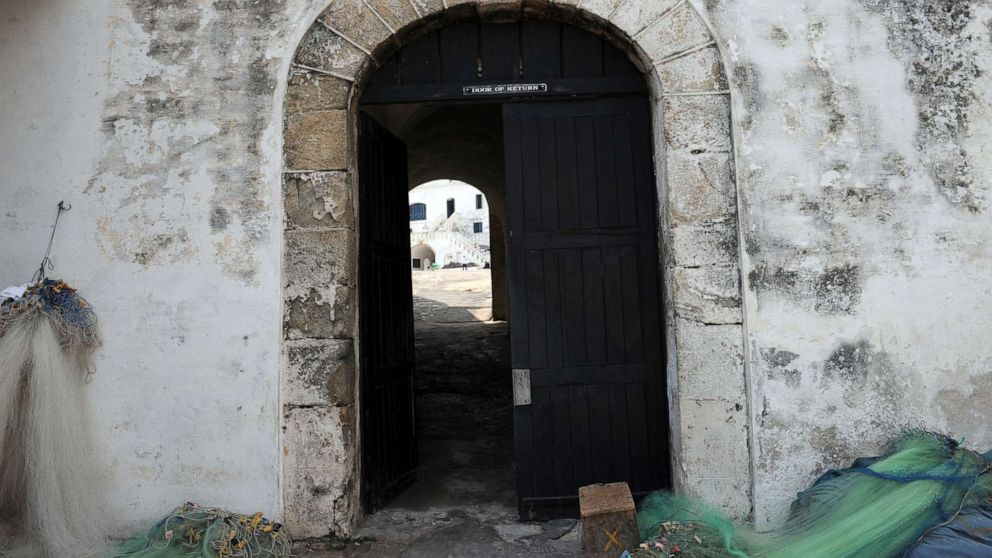
Hundreds of years after those fateful voyages, millions of the descendants of those slaves have been returning to the castle — creating a full-circle moment.
“That’s why they say it’s the ‘Door of No Return,’ because they believed at that time that if they erased all these things from ourselves, that we’d never find our way back home,” Halevi said. “But look at the resiliency of the African spirit, and look at who you and I are — that we made our way back home.”
Actor Boris Kodjoe is best known for his work on screen in films like “Brown Sugar” and the ABC TV series “Station 19,” but when he’s off screen, he says his mission is much bigger: bringing the Black diaspora back to Africa.

“When you walk the paths of the dungeons at these slave castles, whether it’s Elmina or Cape Coast, you feel the spirits of your ancestors,” Kodjoe said. “You feel the suffering and the pain and just the atrocities that took place there, and you realize at that moment that you’re not a descendant of slaves, but you’re a descendant of survivors.”
“To survive the cruelty of the dungeons, to survive the cruelty of the ships and then to survive the terror and the pain of slavery infuses you with so much strength and also commitment to never give up,” he added.
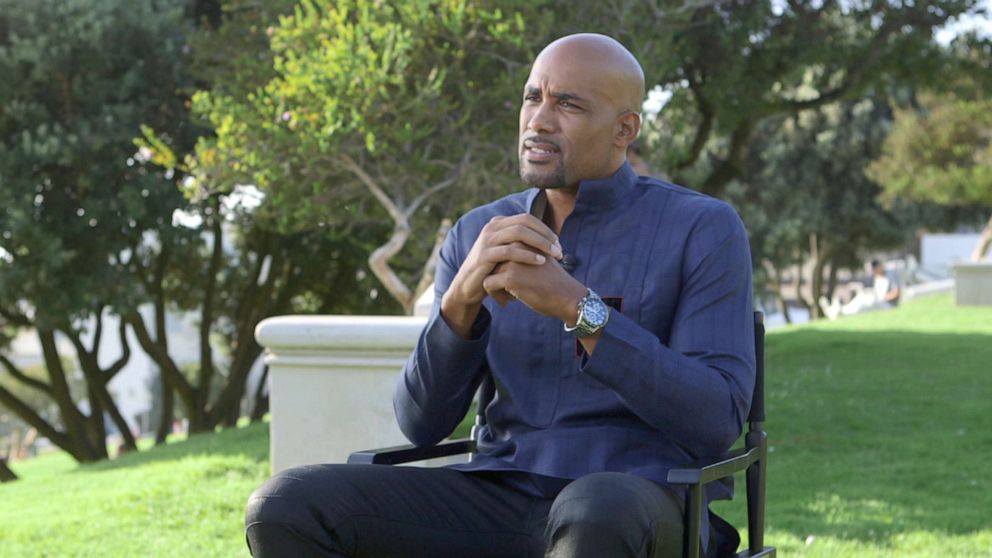
The 47-year-old actor, who was born in Vienna to a Ghanaian father and Austrian mother, co-founded the Essence Full Circle Festival in 2018, which coordinates trips for descendants of slaves to visit and invest in Africa. For him, the mission was personal.

“My background is different from a lot of African Americans, since my father is from Ghana. … So my roots, I never had to retrace. I’m very clear on what my family tree looks like, and that knowledge fills you with pride, but it also fills you with a sense of identity, a sense of culture, heritage,” Kodjoe said.
It’s this exact sense of empowerment that he seeks to share with the Black community.
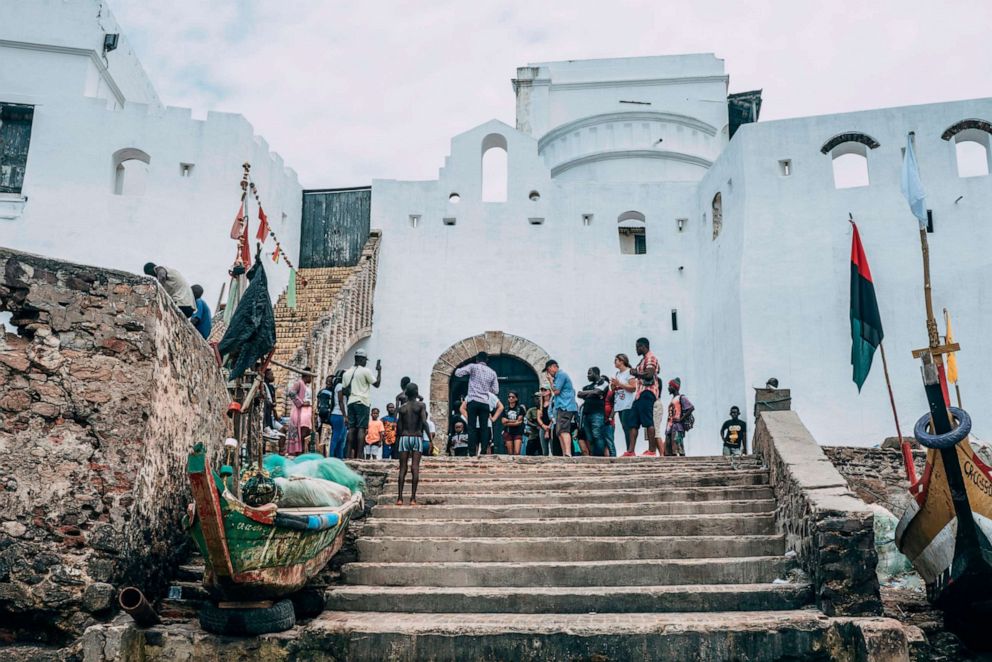
Kodjoe helped organize two trips back to Ghana in 2018 and 2019 for Black Hollywood stars, influencers and entrepreneurs to “reconnect with their ancestry,” he said. Among those invited were “Black-ish” star Anthony Anderson, supermodel Naomi Campbell and “The Wire” star Idris Elba.
The Full Circle Festival took guests to places with significance to the slave trade in Ghana, including the Door of No Return, the Assin Manso Slave River and Jamestown — the oldest district in the nation’s capital, Accra.
“Observing friends who were part of this pilgrimage, if you will, reconnect with their ancestry has been the most overwhelming and just fulfilling experience,” Kodjoe said. “To see, in their eyes, the realization that their ancestry gives them roots and a sense of belonging and therefore a sense of purpose, [it] is such an important experience that you want everybody to have that experience.”
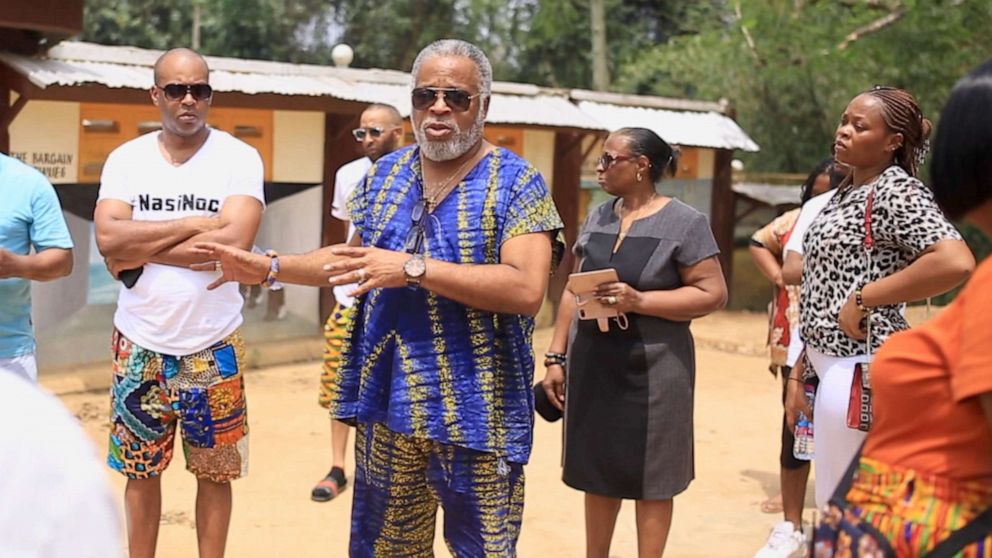
Guests were told about their ancestors’ history and given tours of Ghana’s neighborhoods and beaches. They were also welcomed at President Nana Akufo-Addo’s home for a reception dinner.
“There’s a lot of history that’s shared between the continent and the diaspora, if you will. So to me, Full Circle Festival represents the honoring of our ancestry but also the realization that we have to build this bridge between the diaspora and the continent in order to address those generational traumas that we have suffered on both continents,” Kodjoe said.
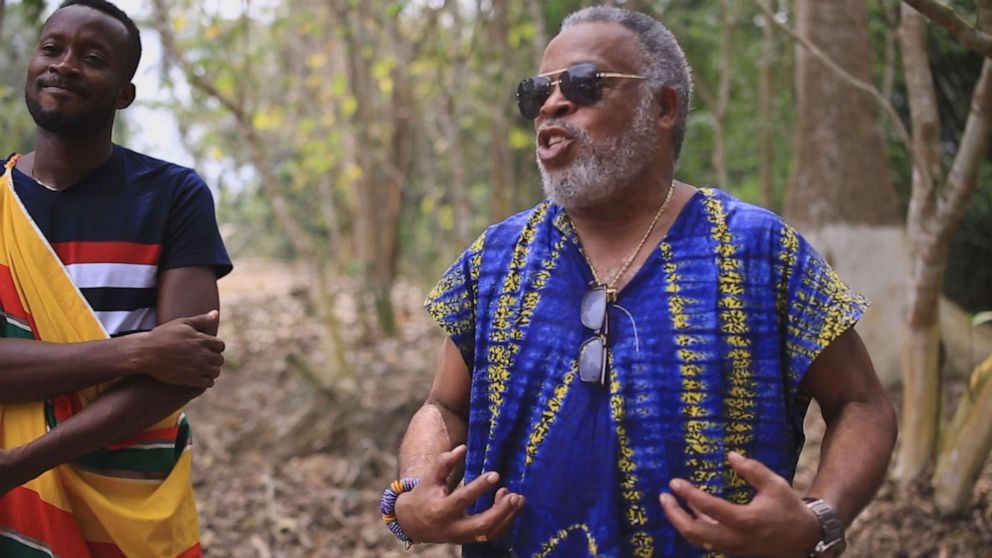
A large part of the festival involves being honest about those traumas and examining the lingering emotional and economic effects of colonialism.
“There is this disparity that has been carried from one generation to the next over hundreds and hundreds of years,” Kodjoe explained. “The goal is to first acknowledge our history and realize that this generational wealth didn’t just appear but it was systematically prepared, and there were mechanisms put in place to ensure that certain people were at an advantage and others weren’t.”
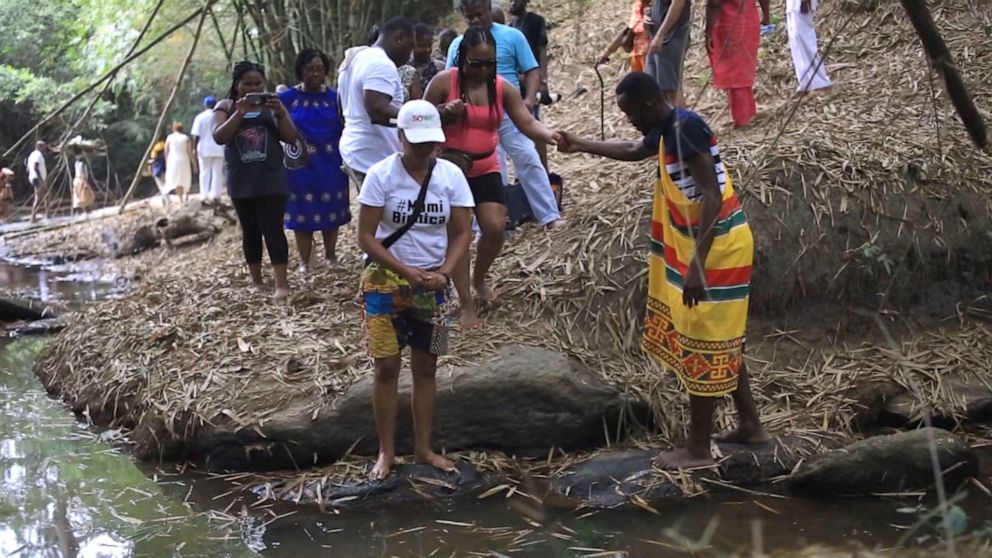
In the United States, the median and mean wealth of Black families is 15% less than that of a white families, according to a 2019 survey from the Federal Reserve.
The wealth gap has been growing, according to the Brookings Institute, said in a 2020 report that the ratio of white family wealth to Black family wealth is higher today than it was at the start of the century — a result in part of white families inheriting wealth.
Kodjoe says there are “actually certain steps we can undertake, collectively, to reduce that wealth gap and to make things right.”

A large part of Kodjoe’s efforts have been to rectify false narratives about Africa that persist to this day.
“We’ve been told so many lies in the past hundred years about Africa that have kept us from it,” he said. “This newfound excitement and interest has ignited a wave of not just tourism but people coming to Africa to experience, not just the culture, but also investing in Africa.”
“The traditional narrative about Africa has been dominated by poverty, war, corruption, mass exodus to Europe,” he added. “There’s vibrancy and music and food and people and sights, and there’s tremendous potential in terms of economic development.”
In 2019, Akufo-Addo called for the descendants of slaves to visit the country and commemorate the 400th anniversary of the Transatlantic Slave Trade, which he triumphantly called “The Year of Return.”
Tourism boomed in Ghana that year, with nearly a million tourists touching down — most of them hailing from the U.S.
Experts say ancestry DNA tests are a driving force behind some of the travel. The United States has also seen a racial reckoning unfold over the last few years, with protests across the country decrying racism and police brutality. The heightened focus on the Black identity has also contributed to a wave of interest in descendants’ African roots.
Full Circle Festival has done more than just reconnect visitors with their past, too; it’s reinvested in Africa as well, already generating over $1 billion toward the local economy.
“Full Circle Festival started changing the narrative about Africa, specifically Ghana,” Kodjoe said. “We noticed that after just one year, we had helped stimulate the economy by $1.9 billion, and that was of utmost importance to show people the diversity and the vibrancy and the potential for not just tourism but business in Africa.”
Since moving to Ghana over two decades ago, Rabbi Halevi has guided newcomers through monuments of the past.
“Ghana has been the gateway for millions of Africans that were taken away from this soil to various parts of the diaspora throughout the last couple of centuries, and now we find that has reversed,” he said. “Ghana is now a gateway for hundreds of thousands, and hopefully millions, of Africans in the diaspora to return back to Mother Africa, through the gateway of Ghana.”
One place he takes visitors is the Assin Manso Slave River site, where Africans from various parts of the continent had their “last bath” on their native land before being sold into servitude.
“Our ancestors believe if you walked barefoot with it, you’re connected all the time with its strength and its power,” Halevi told a group of tourists.
“How many people will lay on this ground to get the strength of mother earth back in your body. That’s where the strength comes from. … We take our shoes off at the river, bathe in the river,” he added.
Halevi praised the influx of visitors to Ghana, saying, “Africa is a place we can also come and enjoy. It’s not a place of agony and pain, sickness and starvation. It’s a place that is on the rise as the place is being rebuilt after centuries of devastation and for sons and daughters having been ripped from her womb.”
“Africa is on the rise and African people are also ascending,” he added.
Kodjoe said he hopes that these trips will change how the world views and engages with Africa.
“The goal is to continue to change that narrative and engage with the diaspora, build a bridge between the diaspora and the continent, which then hopefully will result in more economic development investment,” he said.

